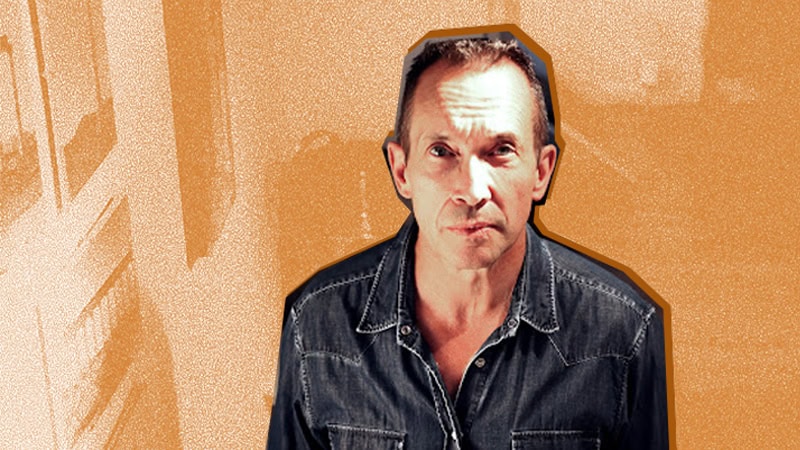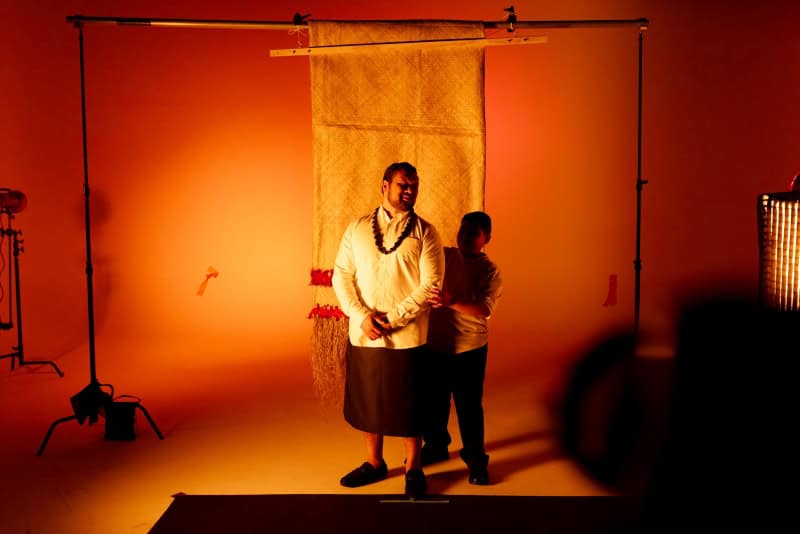
Kia ora koutou and nau mai haere mai to the first instalment of Stage Notes for our 2025 season of The Monster in the Maze.
Over the course of recorded history, it’s safe to say that few stories have been shared quite so widely, across as many generations or in as many formats as the Ancient Greek myth of Theseus and the Minotaur. But no matter how many times you’ve heard this old tale, we’re confident that our 2025 season of Jonathan Dove’s internationally acclaimed community opera The Monster in the Maze will have you listening with fresh ears.
With our community choir rehearsals well and truly underway in Ōtautahi Christchurch, Te Whanganui-a-Tara Wellington and Tāmaki Makaurau Auckland, we’re growing more excited by the day about finally sharing this work with all of you. But before we get there, we thought it’d be worth taking a little time to dive into the what, how and why of this piece – and what better way than by speaking to the composer himself?
Read on for our full chat with Jonathan Dove, covering everything from the purpose underpinning Monster to exactly what he “stole” from Britten in the course of making it, and remember to book your tickets soon – adult tickets are just $45, with generous student, under-25 and group discounts available. Don’t miss out!
NZO: The Monster in the Maze is not the first community opera you’ve written, but it may be the most widely-performed. What do you think it is about this work that’s enabled it to connect so widely, and in so many distinct presentations?
Jonathan Dove: The story is certainly crucial to the work’s popularity: even though it is an ancient myth, we don’t have to look far for modern parallels to the tyrannical ruler, dangerous sea-journeys, a monster to overcome.
The nature of the storytelling is also important. It doesn’t demand elaborate scenery; the important element is that most of the story is told in choruses. It offers an opportunity for children, teenagers and adults to collaborate with professional singers and instrumentalists. And this offers opera companies an opportunity to connect with their communities in a different way: to invite non-professionals onto their stage, and into their orchestra-pit, not just into their audience.
The music is very approachable: although it’s actually quite challenging for the performers, the audience can enjoy it on first hearing. It’s dramatic, and there’s a happy ending!

The source material of this work is enormously well-known – did you find that presented challenges with regard to your composition or Alasdair Middleton’s libretto, or did that make your work in some ways easier?
Even when a story is well-known, you can’t assume that everyone will know or remember all the details, so we still wanted to make it clear and vivid. We also wanted it to be fun for the performers, and engaging for the audience. The Athenians think they are sending their youth off to certain death, which is a desperate situation; but the youth know that Theseus has stowed away with them, so there is hope.
Knowing that a story has been retold so many times gives you confidence that it is worth telling. And encourages you to find new musical and dramatic expression for the powerful feelings it stirs up.
You’ve noted Noye’s Fludde as a touchpoint for your work with Monster. What in particular about Britten’s work inspired your own?
I stole a lot of things from Britten: having a role for younger children, while giving the lion’s share to the teenagers; and starting the opera with an actor speaking rather than singing: it means that the audience knows exactly what is happening right at the beginning, even if they are not used to opera. Like Britten, I use a powerful, well-known mythic story and tell it in less than an hour. The main thing I did differently was to include an adult chorus on stage, while Britten uses the audience as his adult chorus. This worked brilliantly when everyone in the audience knew the Anglican hymns he used, but times have changed.
Monster has now been performed in eight different languages and in almost every corner of the world. How does it feel for you as composer to see a work have such wide, sustained reach? And what are you excited to see from New Zealand Opera’s staging?
It is wonderfully gratifying to feel that we have made something useful, a work that offers performers, audiences, orchestras and opera companies something that they need. I’m excited to see how the performances in Christchurch, Wellington and Auckland connect with their communities, and see if they maybe attract a new audience — families and friends who come to support people they know, even though opera may be new for them.